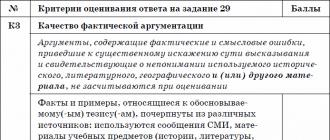Name day 4 February. Angel Day: women's name day in February. Church Orthodox holidays in February
Boys whose name day is February 4 are protected by St. Timothy. An apostle and disciple of Paul, he was a great man, sincerely believed in Christ the Savior, and the bearers of the names inherited his courage and fortitude.
Those who have Angel Day today never give up, there are no insurmountable obstacles for them. On this day, in 2020, women's name days are not celebrated, but men's are celebrated on a grand scale. The girls are also protected by the apostle Timothy. Birthdays can honor a righteous saint.
Timothy was born into a simple family of farmers, in the Lycaon city of Lystra, in Asia. He accepted the Christian faith in the year 52, and was baptized by the Apostle Paul.
Paul and Barnabas in their wanderings visited the cities of Lycaon, they healed a lame boy from birth in front of witnesses. Many residents of the city then believed in Christ, and among them Timothy with his mother Eunice and grandmother Loida.
The young man became a disciple of Paul, and then his constant companion and assistant in the preaching of the Holy Scriptures.
The apostle loved young man, treated him like a son and was very grateful for his loyalty and dedication.
Some time later, in the year 65, Paul ordained a disciple as bishop of Ephesus. Saint Timothy ruled the church for fifteen years.
During his stay in a Roman dungeon, before his martyrdom, Paul summoned Timothy to his last meeting. They said goodbye, and the apostle commanded the disciple to keep the true faith and enlighten people.
In the year 80, in Ephesus, the pagans celebrated services to their gods, carried idols around the city and sang songs and prayers in their honor. The bishop tried to stop the procession, to reason with the blinded idolaters and turn them into the Christian faith.
Enraged by his speeches, the crowd rushed at the saint, beat him, dragged him through the crowded streets and stoned him to death. He was martyred for his faith in Christ.
Posthumously, Timothy was canonized, the holy relics were transported to Constantinople and buried in the Church of the Holy Apostles. In Christianity, his memory is honored to this day.
Names in February (how to name boys and girls in February)
Birthdays in February:
1 - Anton, Arseny, Grigory, Efim, Makar, Mark, Nikolai, Peter, Savva, Fedor, Feodosia.
2 - Efim, Zakhar, Inna, Lavrenty, Leo, Pavel, Rimma.
3 - Agnia, Anastasy, Valerian, Eugene, Ivan, Ilya, Maxim, Theodosius.
4 - Agathon, Anastassy, Gabriel, George, Efim, Ivan, Joseph, Leonty, Makar, Nikolai, Peter, Timofey, Yakov.
5 - Gennady, Evdokia, Catherine, Clement, Seraphim, Fedor, Feoktist.
6 - Anastasy, Vavila, Gerasim, Denis, Ivan, Xenia, Nikolai, Pavel, Timofey.
7 - Alexander, Anatoly, Boris, Vasily, Vitaly, Vladimir, Grigory, Dmitry, Moses, Peter, Stepan, Felix, Philip.
8 - Arkady, Gabriel, David, Ivan, Joseph, Clement, Maria, Peter, Semyon, Fedor.
9 - Dmitry, Ivan, Peter.
10 - Vladimir, George, Ephraim, Ignatius, Isaac, Leonty, Olga, Fedor, Theodosius.
11 - Gerasim, Dmitry, Ivan, Ignatius, Jonah, Konstantin, Lavrenty, Leonty, Luke, Roman, Julian, Yakov.
12 - Vasily, Vladimir, Grigory, Ivan, Hippolyte, Clement, Maxim, Pelageya, Peter, Rustik, Stepan, Fedor.
13 - Athanasius, Victor, Ivan, Ilya, Nikita, Nikifor.
14 - Vasily, Gabriel, David, Nikolai, Peter, Semyon, Timothy, Tryphon.
16 - Anna, Vasily, Vladimir, Dmitry, Ivan, Mikhail, Nikolai, Pavel, Roman, Svyatoslav, Semyon, Simon, Timofey.
17 - Alexander, Alexei, Andrei, Anna, Arkady, Boris, Vasily, George, Dmitry, Catherine, Ivan, Joseph, Cyril, Methodius, Mikhail, Nikolai, Peter, Seraphim, Sergei, Sidor, Fedor, Feoktist, Yuri.
18 - Agafya, Alexandra, Anton, Vasilisa, Makar, Mikhail, Theodosius.
19 - Alexander, Anatoly, Arseny, Vasily, Dmitry, Ivan, Maxim, Maria, Martha, Sevastyan, Christina, Julian.
20 - Alexander, Alexei, Luke, Peter.
21 - Alexander, Andrey, Zakhar, Makar, Nikifor, Peter, Polycarp, Savva, Semyon, Sergey, Stepan, Fedor.
22 - Vasily, Gennady, Ivan, Innokenty, Nikifor, Pankrat, Peter.
23 - Akim, Anastasy, Anna, Anton, Arkady, Valentina, Valerian, Vasily, Galina, Gennady, German, Grigory, Ivan, Karp, Luka, Mark, Peter, Pimen, Prokhor, Semyon.
24 - Vlas, Vsevolod, Gabriel, Dmitry, Zakhar, Fedora.
25 - Alexey, Anton, Evgeny, Maria.
26 - Anisim, Anna, Artemy, Vasily, Vera, Vladimir, Gabriel, Eugene, Zosima, Zoya, Ivan, Irina, Leonty, Martin, Mikhail, Nikandr, Nikolai, Pavel, Svetlana, Semyon, Sylvester, Stepan, Timofey.
27 - Abraham, Anisim, Isaac, Cyril, Mikhail, Tryphon, Fedor.
28 - Alexey, Anisim, Arseny, Athanasius, Euphrosyne, Ivan, Mikhail, Nikolai, Nikon, Pafnuty, Peter, Semyon, Sofia.
Church Orthodox holidays in February
On February 1, the church celebrates the feast day of St. Macarius the Great of Egypt, who lived in the 4th century. After the death of his wife and parents, he prayed to God for an experienced mentor on the path of spiritual life. He became the hermit elder, following whose example Macarius chose the ascetic path. Like his future teacher Anthony the Great, Macarius experienced many temptations from the evil one. Through the prayer of the ascetic, numerous healings were performed, and he saved many in dangerous circumstances. The monk spent 60 years in the desert, being in constant conversation with the Lord.

February 3rd- Day of Remembrance . Saint Maximus, the son of a wealthy Greek dignitary, lived in the 15th-16th centuries, he received an excellent education, knew several languages, traveled a lot, after which he accepted monasticism in the Vatopedi monastery on Athos. In 1515, at the request of the Moscow Grand Duke Vasily III, he was sent to Moscow to translate manuscripts from the prince's library. Church disturbances turned for the monk into imprisonment and long years of church prohibition and supervision. Maxim Grek spent his last years at the Trinity-Sergius Lavra, continuing to translate the Psalter into Slavonic. He was canonized as a saint in 1988.

Memory, one of the most revered Russian saints, is celebrated February 6. Blessed Xenia was born in the first half of the 18th century. in St. Petersburg. Xenia's husband died, leaving her a widow at the age of twenty-six. Having distributed all her property, the saint put on the costume of her late husband and responded only to his name. She was considered crazy, but it was her cross - a feat of foolishness voluntarily undertaken. Blessed Xenia spent her nights in the open field in prayer or carrying bricks to build a church at the Smolensk cemetery. For feats and patience, the Lord vouchsafed her the gift of insight into hearts and the future. The blessed one died at the age of seventy-one and was buried at the Smolensk cemetery, where a chapel was subsequently built over her grave.

February 7- Memorial Day, the Archbishop of Constantinople, who lived in Cappadocia in the 4th century. Saint Gregory received an excellent education. Together with his friend, the future Saint Basil, he spent some time in the wilderness, then returned home and received the rank of presbyter. After the death of the Patriarch of Constantinople, at the invitation of the Council of Antioch, Saint Gregory took his place and led the fight against heretics. His numerous theological writings and sermons made an enormous contribution to the unity of the church. The saint ended his life in 389, leaving the patriarchal throne and returning to the wilderness.

February 9th- the day of the transfer of relics to Constantinople from Koman, where he died in 407 on the way to exile, convicted by order of Empress Eudoxia for exposing the vices that reigned at court. The transfer of the relics from Koman took place in 438.

12th of February- Cathedral of Ecumenical Teachers and Saints Basil the Great, Gregory the Theologian and John Chrysostom. This common memorial day was approved in 1084 by Metropolitan John of Evchait. At the end of the XI century. in Constantinople there were church discords connected with disputes over which of the three saints was worthy of greater reverence. By God's will, three saints appeared to the metropolitan and, declaring that they were equal before God, ordered them to stop disputes and establish a common celebration for them.
Memorial Day of the Holy Martyr Tryphon of Apamea - The 14th of February. The saint lived in the 3rd century. in Phrygia. From a young age, the Lord gave him the power to cast out demons and heal various diseases. Helping the suffering, he demanded only one payment - faith in Jesus Christ. During the persecution of Christians, Saint Tryphon openly confessed his faith and courageously endured torments for Christ. In Russia, the martyr has long enjoyed love and special reverence among the people.
February, 15 Orthodox Church celebrates the twelfth holiday. According to the Old Testament law, a woman who gave birth to a baby was forbidden to enter the temple for 40 days. Then the mother came to the temple with the baby to offer the Lord a thankful and cleansing sacrifice. Not in need of purification, the Most Holy Theotokos nevertheless brought the Infant Jesus to the Temple in Jerusalem, where she was met by the righteous elder Simeon and the prophetess Anna.

Simeon had a revelation from above that he would not die until he saw the Savior. Taking the Baby in his arms, he glorified God and uttered the famous prophecy: “Now you release your servant, Lord…”. This event marked the meeting of the last righteous of the Old Testament with the Bearer of the New Testament, in which the divine had already met the human. The Feast of the Presentation is one of the oldest in the history of Christianity.

The church celebrates the memory of the Great Martyr Theodore Stratilates February 21st. The saint was born in the Asia Minor city of Euchait at the end of the 2nd century. For courage and mercy, the Lord enlightened him with a perfect knowledge of Christian truth. He was appointed military commander in Heraclea, where he combined his military service with the preaching of the Gospel among the pagans subordinate to him. During the reign of the emperor Licinius in 319, Saint Theodore suffered torment for Christ and was beheaded with a sword. The biography of Theodore Stratilates was written down by his servant and scribe Uar, also glorified as a saint.

25 February a celebration was established in honor of - one of the most famous and revered in the Orthodox world. During the iconoclastic heresy of the ninth century. the icon was kept by a pious widow living in Nicaea. To save the shrine from destruction, the widow lowered the icon into the sea with a prayer. Standing on the water, the icon sailed to Athos, where it was discovered by the monks of the Iberian monastery. Placed in the temple, the icon miraculously appeared several times over the gates of the monastery. Appearing in a dream to one of the monks, the Mother of God declared her will: She wants to be the guardian of the monastery. After that, the image was placed over the monastery gates, so the Iberian icon is also called Portaitissa - the Goalkeeper. In the history of the Iversky Monastery, many cases of the intercession and mercy of the Mother of God have been preserved: the deliverance of the monastery from the barbarians, the miraculous replenishment of food supplies, the healing of the sick.

On the same day, the church remembers St. Alexis, Metropolitan of Moscow and All Russia. The saint was supposedly born in 1292 in Moscow, into a noble boyar family, from childhood he was distinguished by piety, and at the age of 15 he became a monk. He spent more than twenty years in the Moscow Epiphany Monastery. In 1350 Vladyka Theognost consecrated Alexy as Bishop of Vladimir, and after the death of Metropolitan Alexy became his successor. In 1356, the Ecumenical Patriarch Kallistos gave Alexy the right to be considered the archbishop of Kiev and great Russia with the title of "venerable metropolitan and exarch." The saint labored to pacify the unrest and princely strife, founded numerous cenobitic monasteries, and many miracles happened through his prayers. He reposed in 1378, having lived to a ripe old age, and was buried according to his will in the Miracle Monastery.

February 27- in the ninth century. preached in Moravia in the Slavic language. The brothers compiled the Slavic alphabet and translated the Gospel, the Apostle, the Psalter and many liturgical books into the Slavic language, and also introduced worship in the Slavic language. Cyril, who accepted the schema before his death, died in Rome in 869 and was buried in the church of St. Clement.
The very first thing that is given to a person at birth is a name. This is not just a word that the child will be called. The name determines the character, gives a person special strength and skills. For centuries, parents have been choosing a name for their baby using the Orthodox calendar. In the church calendar, you can find information about which day and month the name of the saint corresponds to. This calendar is a good help for parents: it allows you to decide on a name that may bring good luck and happiness to your baby.
Name day, small name day and birthday - is there a difference?
Unlike a birthday, Angel Day has a fundamental spiritual meaning. The day of memory of the heavenly patron, whose name a person bears, has other names, for example, namesake day. Often in the church calendar there are several days of memory of the saints of the same name. For example, Pelageya's name day is honored nine times! Several birthday dates can be celebrated not only by Polyushki. several times a year at Maria, Anastasia, Ekaterina. Galina's name day is celebrated twice a year.
Determining one day of a name day can be difficult. However, church practice implies that the Day of the Angel should be the day that is closest to the date of birth ahead of the calendar. The days of memory of other saints with the same name are called small name days. Please note that these are guidelines rather than rules. You can choose any saint with your own name as a patron.
Sweet-daughter: what to name a baby born in February?
If you don’t know what to name a daughter born in February, a church calendar will come to the rescue with information about who celebrates women’s name days in February. On the first day, Angel Day is celebrated by Theodosius (given by God) and Louise (smiling). February 2 - Karina (impeccable), Vasilisa (princess), "Roman" Rimma and water "Inna. Agnia (immaculate) and Anastasia (resurrected) are celebrated on the third of February. By the way, Anastasia can celebrate the name day and the fourth of February. The fifth number is Memorial Day such saints as Evdokia (favor), Agatha (kind) and Catherine (pure and great).By the way, Evdokia's name day can be celebrated not only on this day: in the church calendar, women's name days in February for girls with this name are celebrated on February 13 and 14.

On the sixth of February, Ksenia and Oksana celebrate the name day. These two names have the same translation - "guest". Ladies with the name Felicity (happy) can celebrate Angel Day. The eighth, seventeenth and twenty-fifth of February is the name day of Mary, whose name means "stubborn".
The 10th is the day of memory of the "bright" Olga, and the twelfth is the name day of Pelageya (sea). Feoktists (created by God), Afanasia (immortal) and Theodosius (given by God) Angel Day can celebrate the Sixteenth - the day of memory of the prophetess Anna, whose name translates as "grace", and the twenty-third - the blessed Princess Anna of Novgorod. The “chaste” Agafya celebrates the name day on February 18, the “protector of people” Alexandra, the “follower of Christ” Christina and the “noble” Martha on the nineteenth.
On the twenty-third of February, the name day of a girl named Bella (beauty), Valentina (strong) can be celebrated. On the same day, the name day of Galina (calm) is celebrated. 26 last day winter month- the name day of "cheerful" Zoe, "peace-loving" Irina, "bright" Svetlana. Women's name day in February church calendar Euphrosyne (joy) and Sophia (wisdom) are celebrated on the 28th.

How to celebrate women's birthday in February?
Name days are a very personal and spiritual holiday. So, one feast and a meeting of guests is not enough. The main place of celebration is the temple! On Angel Day, it is recommended to go to confession and communion. If you don’t want to refuse a festive meal, you should follow a number of rules.
Of course, drinking alcohol on the day of the name day should be avoided. Not a place at the celebration and strangers. Communication should be close, filled with bright joy and spirituality. It is necessary to invite godparents - they must certainly share the joy with the birthday man!
Name day in fasting
If Angel Day falls on Wednesday, Friday or Lent, you should think carefully about the menu. The table must be lean. Great Lent also introduces certain restrictions. At this time, it is better to postpone the celebration of the name day to the next weekend.

Gifts for women's birthday in February
Of course, gifts on name day are significantly different from what we are used to giving on birthdays. You should not bring cosmetics and alcohol, dishes or other household items to the birthday man. A cash gift is also not the best option.
What to give a woman for a birthday? The most appropriate gift is a nominal icon. Moreover, it is best to order it from a professional icon painter. For the triumph of the soul, you can give beautiful candles, books, vessels for holy water.

Analogue of Angel Day
One of the biggest holidays in Serbia is the Glory of the Cross. Indeed, in this country, each family has its own. The succession of the saint comes from father to sons. Daughters inherit the patron only if they remain in the family of origin.
On this day, the whole family goes to church. Communion is followed by a gala dinner. Serbs have two duties on this day. The first is a prayer for all relatives, living and dead. And the second is a treat for guests. The feast can last up to three days!
A similar holiday in Bulgaria is called Svetets. On this day, the oldest representative of the family went around relatives. Raising up the ceremonial bread, he wished the family members happiness, after which he broke the bread and distributed it.





